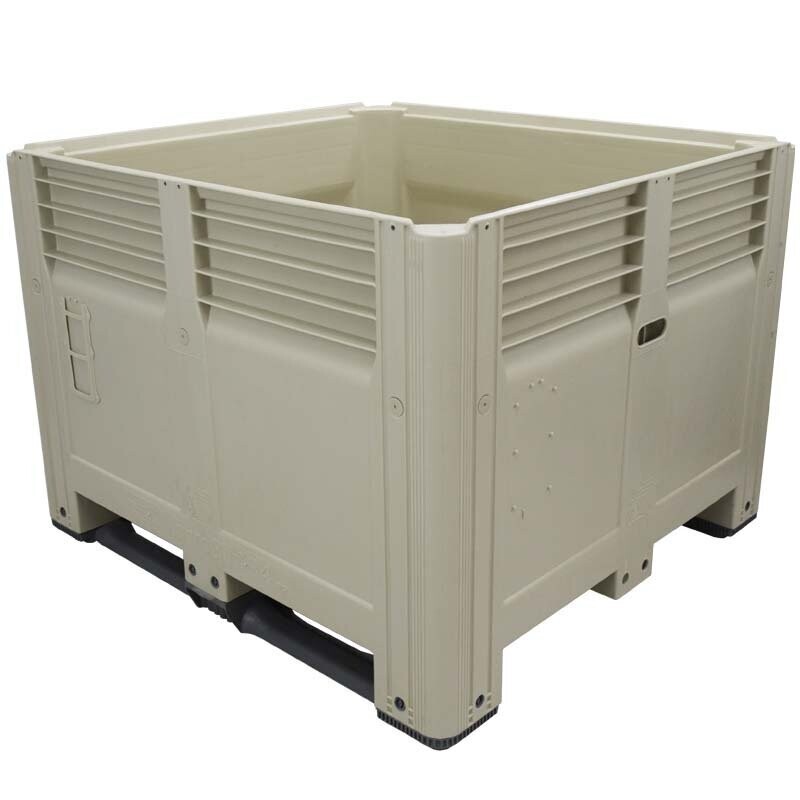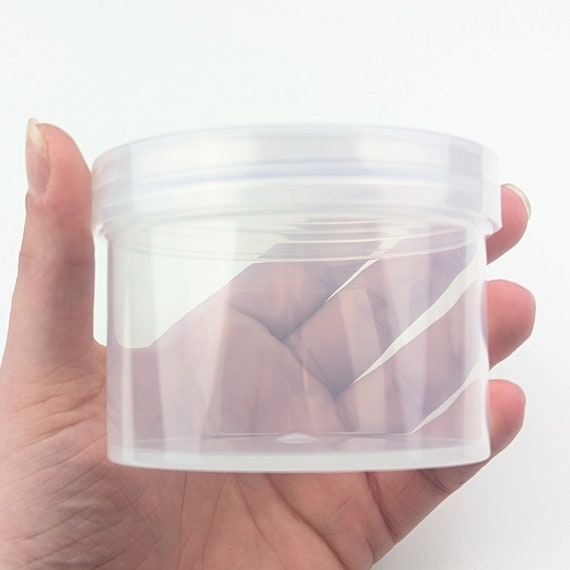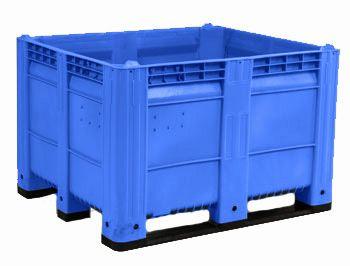Everything About Mass Plastic Containers: Advantages, Applications, and Industry Insights
Bulk plastic containers play a substantial function in various markets, providing advantages that improve performance and sustainability. Their lightweight nature minimizes delivery expenses, while their durability assurances secure storage and transportation of varied products. As firms increasingly look for eco-friendly solutions, the demand for these containers is growing. This increases crucial concerns concerning the products made use of and the fads influencing their style. What ramifications do these elements have for the future of mass plastic containers?
Advantages of Mass Plastic Containers
Mass plastic containers supply a multitude of benefits in numerous sectors. Their lightweight layout significantly lowers transportation prices, enabling reliable logistics and much easier handling. Additionally, these containers provide longevity and resistance to weather components, chemicals, and physical influence, making sure the safe storage and transportation of goods. The convenience of bulk plastic containers allows them to be formed into various sizes and shapes, dealing with certain market demands.

Typical Applications Throughout Industries
While various sectors utilize bulk plastic containers, their applications are especially prominent in markets such as food and drink, drugs, farming, and production. In the food and beverage market, these containers are necessary for keeping and delivering products like grains, liquids, and prepared meals, making sure quality and security. The pharmaceutical market counts on mass plastic containers for safe and secure storage space of vaccines and drugs, preserving conformity with rigorous guidelines.
In agriculture, these containers help with reliable handling and transportation of fruit and vegetables, plant foods, and chemicals, while also supporting sustainable methods via recyclability. Production markets make use of bulk plastic containers for parts storage and setting up line operations, advertising company and workflow performance. In addition, these containers serve a significant duty in logistics and supply chain management, simplifying the activity of products throughout numerous sectors. On the whole, the versatility of bulk plastic containers makes them indispensable across numerous industries.
Product and Layout Considerations
When choosing bulk plastic containers, material and design considerations play an essential duty in making sure capability and compliance with industry requirements. The choice of product greatly impacts the container's durability, weight ability, and resistance to ecological aspects. Common materials include high-density polyethylene (HDPE) and polypropylene, known for their stamina and chemical resistance.
Style facets, such as dimension, closure, and shape mechanisms, additionally influence functionality. Containers with ergonomic takes care of and stackable layouts boost storage performance and convenience of transport. Furthermore, functions like airing vent or water drainage holes might be necessary for certain applications, enabling air flow or liquid elimination.
Compliance with security laws, such as FDA authorizations site for food-grade applications, is important. Bulk Plastic Containers. On the whole, mindful factor to consider of materials and style can enhance performance and durability, guaranteeing that mass plastic containers satisfy the varied demands of various sectors properly
Fads in Mass Plastic Container Use
As markets evolve, the use of mass plastic containers is increasingly affected by sustainability and performance. Companies are choosing green products, navigate to this website such as recycled plastics, to lessen ecological effect while preserving resilience. This change is driven by consumer need for regulative stress and sustainable methods focused on lowering plastic waste.
The trend towards automation in logistics and supply chain administration is improving container layouts. Mass containers are now being crafted for compatibility with automated systems, improving operational effectiveness. Lightweight layouts are also obtaining traction, as they decrease delivery prices and power usage throughout transport.
Additionally, personalization is becoming a centerpiece, permitting organizations to customize containers to specific needs, consequently enhancing space and capability. These patterns show a wider commitment to sustainability, advancement, and efficiency within numerous markets, guaranteeing that mass plastic containers remain to play an important role in modern supply chains.
Best Practices for Storage and Transportation
Efficient storage space and transportation of mass plastic containers require adherence to finest methods that enhance security and efficiency. Containers should be stacked securely, guaranteeing that weight is evenly dispersed to stop tipping or damages. Utilizing pallets can promote much easier activity and secure the containers from ground dampness. In addition, proper labeling is essential for fast recognition and monitoring throughout transit.
Temperature control is another vital variable; extremes can compromise the integrity of the products. When essential, it is suggested to keep containers in a climate-controlled environment. For transportation, selecting appropriate vehicles developed for mass tons assurances security and minimizes danger during transportation.
Routine examinations of containers prior to storage and transportation assistance recognize any wear or damage, permitting for prompt maintenance or substitute. By following these finest methods, companies can enhance the lifecycle of bulk plastic containers this while maintaining functional effectiveness.
Often Asked Concerns

Are Mass Plastic Containers Recyclable After Usage?
Yes, bulk plastic containers are typically recyclable after use. Nonetheless, recyclability depends upon the product kind and local recycling programs. Correct cleaning and sorting are crucial to assure they are approved by reusing centers.

What Is the Lifespan of Mass Plastic Containers?
The lifespan of mass plastic containers commonly varies from five to 10 years, depending upon usage problems, material quality, and ecological aspects. plastic bulk containers. Proper maintenance can extend their longevity, making them a resilient storage option
Can Bulk Plastic Containers Be Personalized?
Yes, bulk plastic containers can be tailored. Suppliers commonly provide choices for size, shade, material, and branding, enabling businesses to tailor containers to their certain requirements and boost their item presentation and performance.
How Do Bulk Plastic Containers Contrast in Price to Alternatives?
Bulk plastic containers generally supply a reduced cost contrasted to choices like metal or glass, as a result of their light-weight nature and resilience. This makes them a cost-effective option for companies needing efficient storage remedies.
Exist Security Rules for Utilizing Mass Plastic Containers?

Bulk plastic containers play a significant function in various markets, supplying advantages that enhance efficiency and sustainability. While different markets use bulk plastic containers, their applications are particularly famous in sectors such as food and beverage, drugs, agriculture, and production. Production sectors utilize bulk plastic containers for components storage space and setting up line operations, advertising organization and process performance. When selecting bulk plastic containers, material and layout considerations play an essential role in ensuring performance and compliance with sector standards. As markets advance, the usage of mass plastic containers is increasingly influenced by sustainability and efficiency.